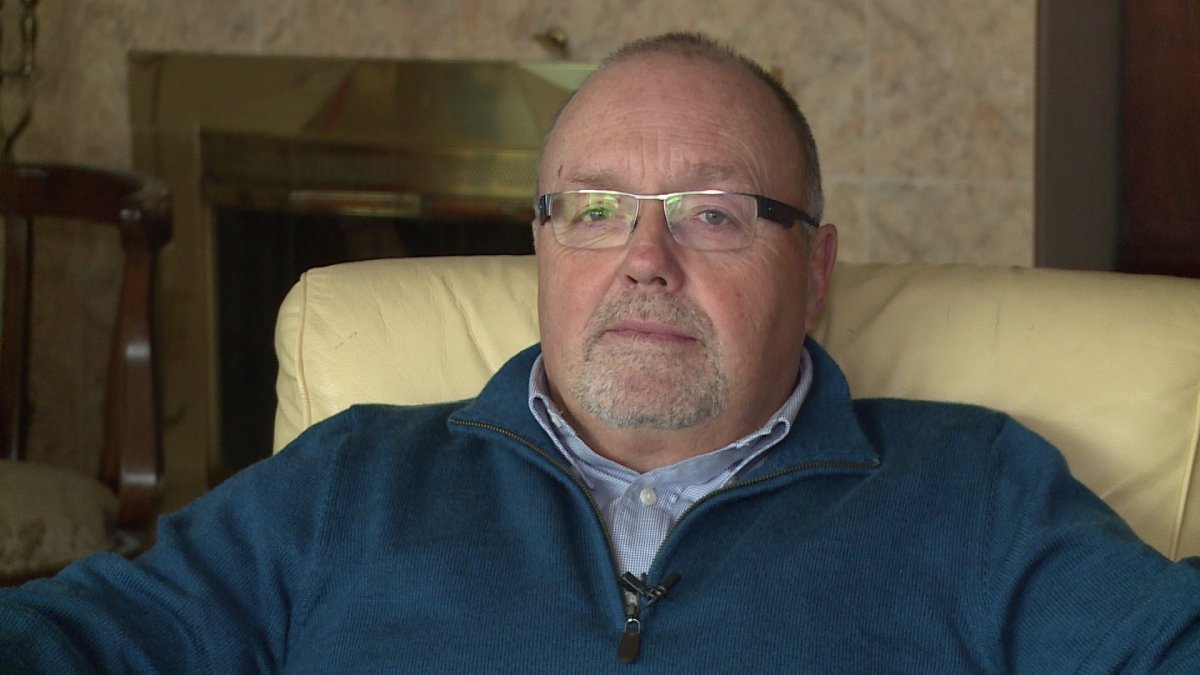HALIFAX – There is a silent killer in Tim Westhaver’s family, but it is one that he has known about for years, thanks to genetic testing.

READ MORE: What you should know about genetic testing kits
Westhaver, 56, has lost many family members unexpectedly during his lifetime. His mother died when he was six weeks old, his oldest brother passed away as an adult and two nephews have also died suddenly.
Family members chalked it up to a familial trait but no one knew whether they could or would fall victim to it.
25 years ago, Westhaver experienced heart complications, an event that began his journey to discovering what was going on in his family.
Westhaver, who was a runner, was feeling shortness of breath, dizziness and nausea. Doctors didn’t understand because the Halifax man was otherwise healthy.
“They said ‘Yeah you have a very strange heart but it seems to be working mostly’,” he said.
Then 10 years ago, Westhaver decided to undergo genetic testing and learned he had two genetic markers for hypertrophic cardiomyopathy, HCM.
HCM is inherited and is caused by abnormal genes that cause the heart muscle to thicken, thereby making it more difficult for the heart to pump blood. There are often few symptoms but it can cause sudden cardiac death.
“In a very strange way to be diagnosed with something like this, it was a relief,” he said.
“I had spent many years with palpitations and shortness of breath and other cardiac symptoms that were unexplained.”
Explaining the unexplained
Amy Crowley, a genetic counsellor at the IWK Health Centre, said interest in genetic testing has been on the rise the last few years. Genetic counsellors talk to patients about his or her medical history as well as their family’s history.
READ MORE: Moncton doctors speak out against DNA sequencer in Saint John
Crowley said she sees patients who have concerns about their pregnancy, their family’s history with cancer or a variety of cardiac concerns. Those findings have implications not only for the patient but his or her immediate and extended family.
“There may be a sudden death in their family and they’re wondering if another individual in their family could be at-risk for that as well,” she said.
“We can identify family members who are at-risk to also develop this condition. The nice thing is we can also identify family members who aren’t at-risk. Let’s say someone has four children. We may find out two of their children are at an increased risk to develop that condition but the other two aren’t.”
Crowley said counsellors do not push patients to get testing; she said they provide patients with the information and awareness to make that decision for themselves.
“It is a very personal choice. Some people choose not to pursue testing. They decide they’re comfortable with the risks they have now and they decide not to go any further,” she said.
“For some people, they live a large part of their life with an assumption that something is going to happen to them or isn’t going to happen to them and that really defines how they see themselves.”
If someone decides to pursue genetic testing, Crowley said the testing involves a referral from a family doctor and taking a blood sample.
Testing can save lives
He said his family’s sudden deaths had caused him to be looking over his shoulder but he said genetic testing has taken that burden away.
READ MORE: Genetic discrimination impacts cancer patients without insurance coverage
Westhaver has since retired, had surgery to implant an ICD to monitor his heart’s structure and electricity and takes medication.
He said those who may be thinking of genetic testing should reach out to a genetic counsellor.
“It can save your life, your children’s lives, your uncle’s life or anybody that’s related to you,” he said.





Comments